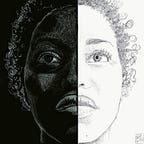Buried Leads: Health Impacts for Survivors of Violence
While we address our personal and social circumstances to COVID-19, as a violence prevention advocate I believe it’s important to take notice to the unique health consequences for survivors of violence.
There is never a wrong time to discuss the critical health concerns for survivors of violence.
Survivors have unique health challenges and they often have to heal from multiple forms of consequences from the harm they have experienced. These experiences then compound health concerns, and complicate a person’s experience the current pandemic we find ourselves in.
Domestic violence is one of the most pervasive forms of violence, with drastically harmful consequences for the immune system health of survivors.
Physically and emotionally the long term impacts of violence changes people’s lives and their body’s chemistry. As we address the concerns that the spread of the Coronavirus, we must also consider the damage that has been done to people and how that harm creates an unequal ability for them to heal themselves.
When the body experiences consistent levels of stress our bodies excretes cortisol and adrenaline. Long term impacts of these hormonal excretions (namely cortisol) can be harmful to the individual.
A person’s ability to heal is based on a number of factors. Survivors of violence are disproportionately impacted by this biological reality, and in difficult times like these, survivors are even more at risk as additional stress, isolation, and past trauma impact a person’s ability to thrive
According to the Mayo Clinic, “Adrenaline increases your heart rate, elevates your blood pressure and boosts energy supplies. Cortisol, the primary stress hormone, increases sugars (glucose) in the bloodstream, enhances your brain’s use of glucose and increases the availability of substances that repair tissues.”
How does this connect to our current situation?
Survivors of violence already experience a high level of isolation from their abuse and harm they’ve known — this is not a new reality for us. In this time when millions of people are asking us to “shelter in place” and to only leave the house for “essential” activities we will find that as this isolation exacerbates the health outcomes for survivors of violence will decrease.
This reality is compounded by the need to have multi-faceted healing approaches. The difficulty is we have linear health care system that doesn’t address root causes. Many speculate that it is because of this flaw in our society that the U.S. has suffered from so many confirmed cases of COVID-19 and has lost so many lives.
The ecological model presented by the World Health Organization, shows the ways in which societal, community based, relationship and individual dynamics impact gender based violence. This should give readers some context on the various levels of a persons life that public health professionals examine when looking at someone’s risk level.
People who experience high levels of stress should take precautions around their health to ensure their own ability to thrive. Prior to shelter in place orders and this medical crisis, survivors of violence were already suffering from compromised immune systems and
What could we do?
We need a system overhaul on so many levels. Below are a few thoughts I have on what can be done now.
- I think it’s crucial for survivors to acknowledge their stress symptoms in this time. It’s critical that we respond to our stress with different behaviors to have the most optimal result for our health.
- We need health care professionals to address systemic inequality and close the gaps of what is needed for survivors of violence. Such vitamins like a Cortisol manager, or D 3(50,000 units a week) could save lives in this time.
- There needs to be a process of restoring the lives of people who have been harmed by violent crimes. Because it is so dismantling to an individual, family, our community and society we should focus directly at the root of this harm.
Below are some articles I like that give an intersectional view of this problem and can provide some resources.
